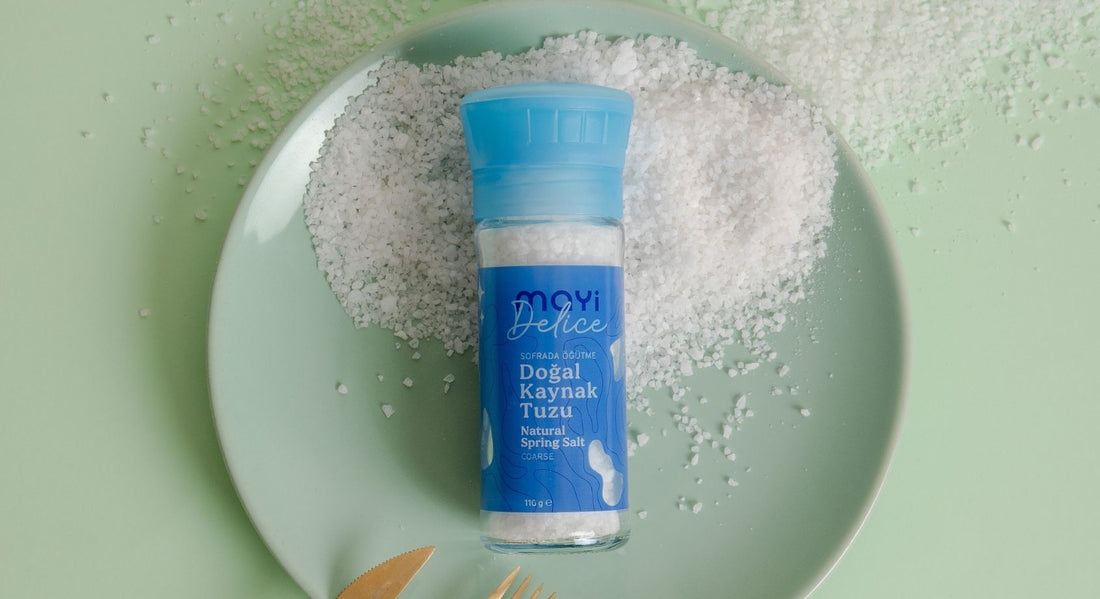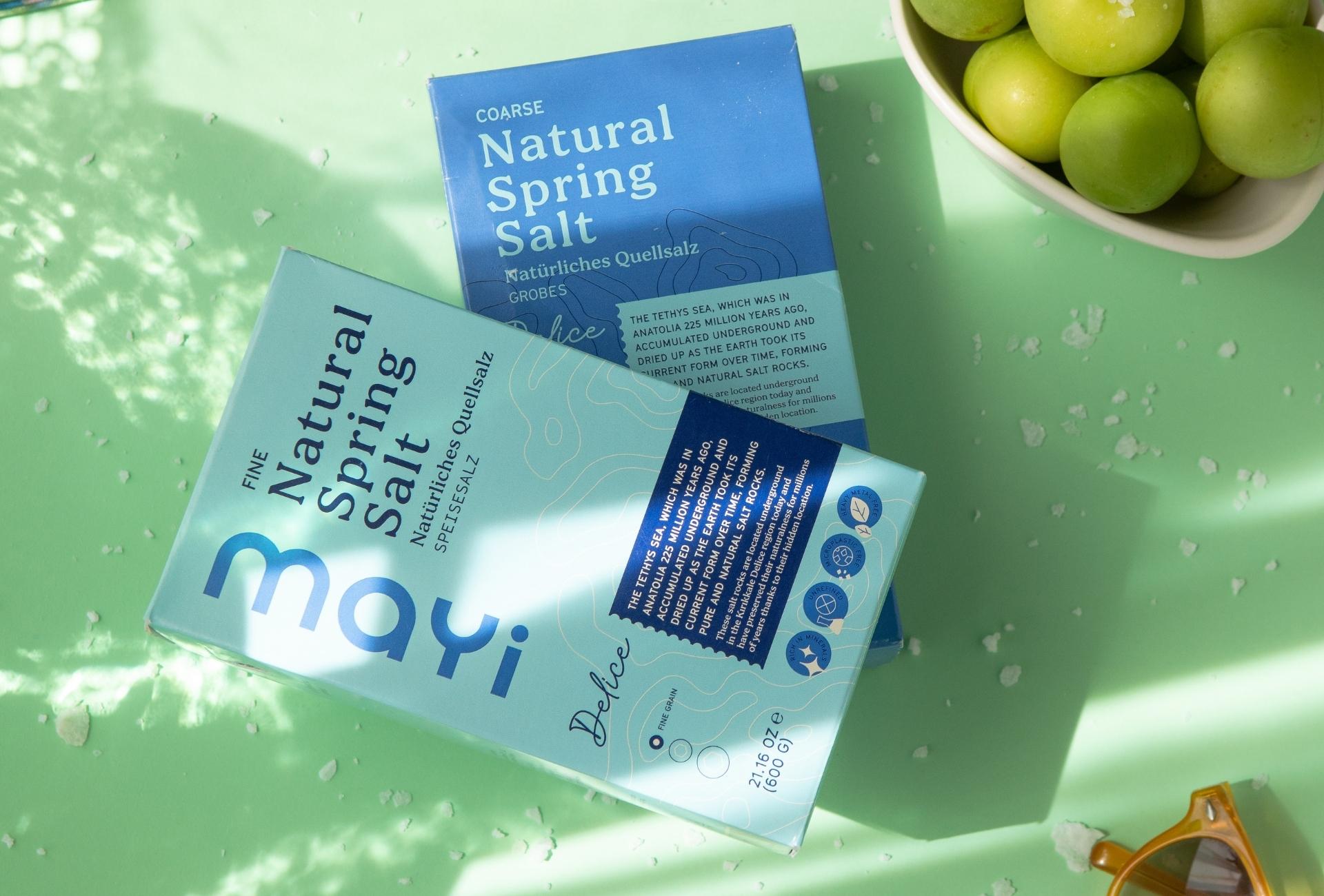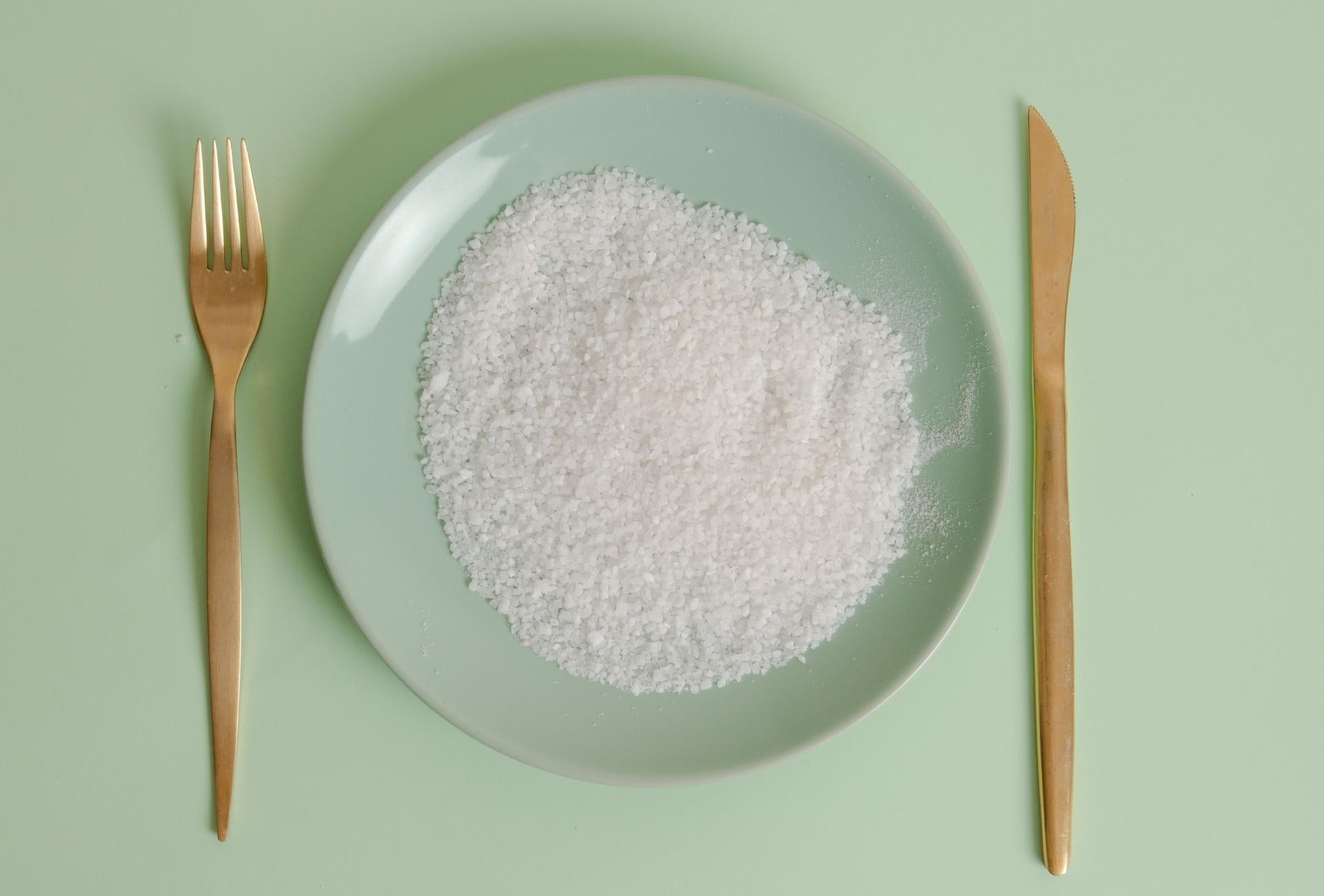Although salt is benefical for health when consumed in moderation according to your body's needs, it becomes risky for health when used excessively. The topic of daily salt intake has gained popularity among individuals striving for a healthy lifestyle. People are seeking answers about how much salt should be used in their dietary habits.
The amount of salt to be used daily can vary due to different factors. Among these factors are the following:
- Gender
- Health condition
- Age
Based on research findings, it has been concluded that the ideal daily salt intake for adults is around 5 gr.
How Much Salt per Day
One of the essential factor of a healthy lifestyle is having a good understanding of what our bodies require. Your body needs salt, but there is a specific amount of salt you should consume in a day. In this context, being aware of your daily salt allowance while making dietary choices helps you strike a balance between taste and health. It protects against certain health issues like excessive sodium intake and high blood pressure. While this amount may vary based on factors like gender, health condition, and daily activity level, health experts generally set it at around 5 gram.
Is 10g of salt a day too much?
Sodium is an important mineral for our bodies. Our bodies obtain a significant portion of their sodium needs from salt. Health research has concluded that the avarage recommended sodium intake per day should be around 1900 mg. To meet this sodium requirement, about 5-6 grams of salt is sufficient.
A person who consumes 10 grams of salt per day would have consumed 4000 grams of sodium per day. This greatly exceeds the limit and can lead to serious health problems. When monitoring your salt intake, remember to consider the sodium content in processed foods. Many processed foods contain sodium. You should check the sodium levels on product labels.
Daily Sodium Intake for Men
Balancing sodium intake is highly necessary for a healthy and well-functioning body. Excessive sodium consumption is notably hazardous for men's health. Therefore, sodium intake holds critical significance for men's well-being as well.
Although it may vary based on factors like age and health status, research has established an average daily sodium intake of around 2,500 milligrams (mg) for adult men. This is roughly equivalent to 5.5-6 grams of salt. When monitoring your sodium consumption, also remember to check the sodium content in processed and canned foods. This limit should be avoided from being exceeded as much as possible.
Daily Sodium Intake for Women
By keeping your daily sodium intake at an ideal level, you can prevent excessive sodium consumption and choose a healthier lifestyle. Daily sodium intake should be limited to a certain threshold. Going beyond this limit can lead to high blood pressure, heart, and vascular problems.
Health experts have set an average daily sodium intake of 2,000 milligrams (mg) for adult women. This is roughly equivalent to 5 grams of salt. However, this ratio can vary depending on factors such as overall health, daily activity level, age, and other considerations. While monitoring your sodium intake, do not forget to check the sodium content in processed foods and canned products you consume.
How Much Sodium per Meal?
There are a few simple methods you can apply to avoid exceeding the recommended sodium intake. One of them is to divide the required sodium amount into meals. By dividing your daily sodium intake into the number of meals you have, you can determine the sodium amount you should consume in one meal.
According to health experts, the recommended sodium intake per day is 2250 grams. Someone who eats three meals a day should consume an average of 750 grams of sodium per meal. By adhering to your sodium intake for each meal, you can achieve a healthier and more energetic lifestyle.
How can I tell how much salt I'm eating?
To be able to track how much salt you are using requires a conscious effort. You can try the following methods for this:
- You should be aware of the sodium content in the foods you consume. For this purpose, you can use apps that provide nutritional information.
- You can check the labels of processed and canned foods to know their sodium content.
- You can set a daily sodium limit for yourself.
- When you feel that the salt proportion in your meals is not sufficient, you can preserve your daily sodium limit by using spices or aromatic herbs instead of salt.
What are signs of too much salt?
Knowing the symptoms caused by excessive salt consumption is of vital importance to protect your health and take precautions.
Common among these symptoms are:
- Bloating, swelling in limbs
- Feeling of thirst
- Elevated blood pressure
- Headache, dizzines




